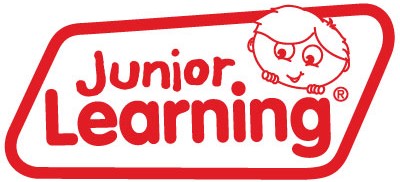Why is dyslexia referred to as the "hidden difficulty"?

Statistics indicate that at least one-tenth of the world have dyslexia, but only 5% know it. Why is this? The simple answer is that you cannot "see" dyslexia. Therefore, if you aren't aware of the signs of the dyslexic gene, it's easy to overlook or misinterpret. Additionally, dyslexia affects one's ability to read or interpret words, letters, and other symbols, but it does not affect general intelligence. Albert Einstein, Steve Jobs, and Galileo Galilee are just a few of the many intelligent and innovative thinkers, all who had dyslexia. The link between intellect and dyslexia is a common misconception, and can often delay parents seeking additional academic support for their dyslexic child. Here are a list of reasons why dyslexia is hard to detect, and why you should should take extra care when assessing whether your child might have this neurological difference.

1. It's not linked to IQ.
There is absolutely no relation between dyslexia and IQ. Dyslexics can have high, middle, or low IQ's just like the rest of the population. Some of the brightest minds have dyslexia. In 2017, YouGov conducted research to gauge public opinion of dyslexia. They found that the majority of the general public assumed that dyslexic individuals were bad at problem solving (88%), lateral thinking (87%), and were not creative (81%) and artistic (86%). What many of us do not realize is that dyslexia only affects the areas of the brain that involve reading and working with language (with underactivity in the left temporal cortex and other regions of the left hemisphere). However, to compensate, dyslexics have overactivity in other areas of the brain which can build skills in visualizing (moving, making and inventing), imagining (creating and interpreting), communicating (explaining and storytelling), and reasoning (simplifying, analyzing, and deciding). This can mean that with the right measures, dyslexics can excel in these areas. In other words, even if your child has great practical, STEM, sports, music, design, or thinking skills, this does not reduce their possibility for having dyslexia. By getting your child diagnosed early, appropriate steps can be taken to maximise their skills and abilities, and enable them to keep up academically with their peers.

2. Dyslexia is not a distinct category; there are no clear cut-off points.
In most cases, dyslexics won't show all the signs of dyslexia, nor will one sign indicate that they definitely have dyslexia. Some might face an obvious difficulty in mental calculation and grasping areas of language, while others will more evidently struggle with memory and cognition, motor coordination, concentration, or personal organisation. For the most part, the common challenges are associated with spelling, poor sequencing skills, and poor short-term memory. A lack of phonological awareness also makes learning to read and comprehension difficult. However, the number, type, and severity of difficulties will vary from one dyslexic person to another, which makes identifying dyslexic quite complex. If you suspect that your child does have dyslexia, the best thing to do is to see an educational psychologist who will get a cognitive profile of your child by examining reading skills, decoding skills, as well as other psychological areas.

3. Often associated to "bad behavior", "withdrawn", "avoidance", and "laziness" when not addressed and treated properly.
A dyslexia diagnosis is often delayed because of the label kids receive as lazy, withdrawn, or bad tempered. Many famous dyslexics had these labels growing up, with teachers and parents failing to recognize their neurological differences. These traits can be directly linked to the struggles and demotivation of students who have undiagnosed dyslexia. Avoidance, for instance, occurs when a child will use a variety of means to avoid reading, spelling or writing, simply to escape humiliation because of their difficulty they have with language. A dyslexic child might start to act out, isolate themselves, distract others, and become the class clown in an attempt to avoid situations that involve reading. Other students could be seen as lazy, as they begin to lose motivation for academic pursuits due to the lack of confidence. Rather than put a label on a child, or retain the view that they will "grow out of it", see if there is a larger issue at play. A diagnosis can help to get these kids on track, provide them with the tools and services to guide them academically, and help them grow in confidence to gain a love for learning.
How can Junior Learning help?
Dr. Duncan Milne, an educational neuroscientist, co-founded Junior Learning to provide educational resources to kids with all learning needs and requirements. Junior Learning's educational products are backed by the latest research in cognitive psychology to help those with dyslexia.
Milne's academic book, "The Miraculous Dyslexic Brain" is a must-read for parents or teachers of dyslexic students. It not only provides a post-mortem autopsy of the dyslexic brain, but sheds light on the latest knowledge of dyslexia, and how Junior Learning's products can help dyslexics achieve their best.

